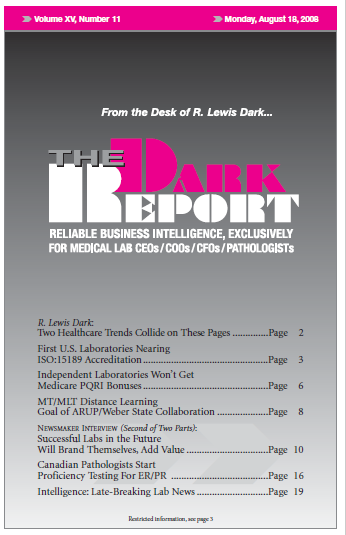CEO SUMMARY: Laboratories, hospitals, and other health-care providers in the United States will increasingly be required to adopt quality management systems (QMS) as part of their regular operational routine. This is consistent with trends in other developed countries. Several U.S. laboratories are in the process of gaining accreditation under “ISO:1519 Medical Laboratories.” These developments will …
First U.S. Labs Nearing ISO:15189 Accreditation Read More »
To access this post, you must purchase The Dark Report.


